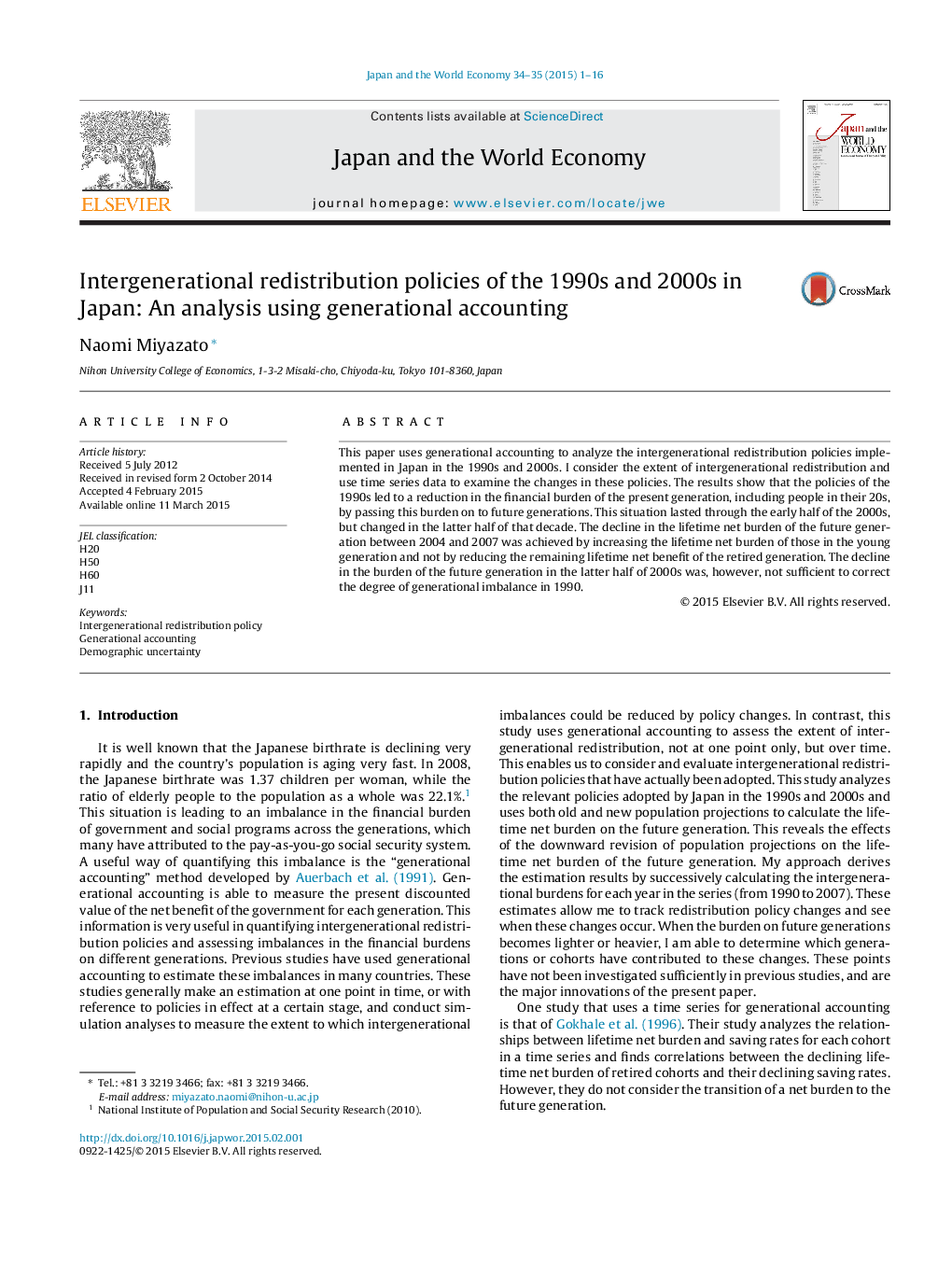| Article ID | Journal | Published Year | Pages | File Type |
|---|---|---|---|---|
| 5086072 | Japan and the World Economy | 2015 | 16 Pages |
â¢This paper analyzes the intergenerational redistribution policies in Japan.â¢This paper uses generational accounting, not at one point only, but over time.â¢The policies in the 1990s led to the transfer of burdens onto future generations.â¢This situation lasted through the first half of the 2000s, but later changed.â¢The decline of the future generation's burdens was only achieved by increasing the young generation's burdens.
This paper uses generational accounting to analyze the intergenerational redistribution policies implemented in Japan in the 1990s and 2000s. I consider the extent of intergenerational redistribution and use time series data to examine the changes in these policies. The results show that the policies of the 1990s led to a reduction in the financial burden of the present generation, including people in their 20s, by passing this burden on to future generations. This situation lasted through the early half of the 2000s, but changed in the latter half of that decade. The decline in the lifetime net burden of the future generation between 2004 and 2007 was achieved by increasing the lifetime net burden of those in the young generation and not by reducing the remaining lifetime net benefit of the retired generation. The decline in the burden of the future generation in the latter half of 2000s was, however, not sufficient to correct the degree of generational imbalance in 1990.
